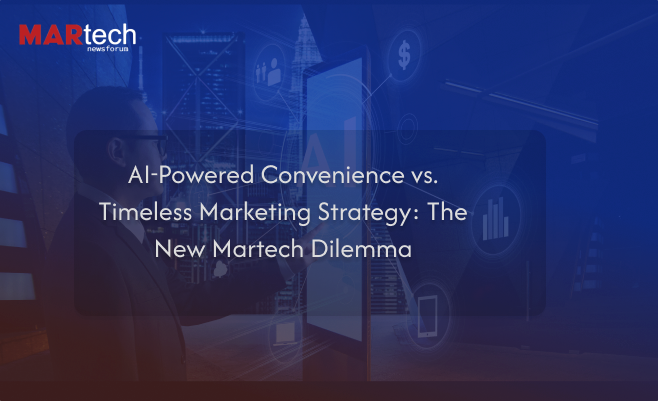
In the ever-evolving landscape of marketing technology, businesses and marketers find themselves at a critical crossroads. The rapid rise of artificial intelligence (AI) has introduced unprecedented convenience and efficiency into the marketing world. Yet, at the same time, long-established marketing principles—rooted in deep customer understanding and emotional connection—continue to hold significant sway. This emerging tension between AI-powered convenience and timeless marketing strategy forms the core dilemma facing Martech professionals today.
The Power and Promise of AI in Marketing
Artificial intelligence has transformed the Martech ecosystem with tools that automate, analyze, and optimize marketing efforts at a scale and speed unimaginable just a few years ago. From AI-driven customer segmentation and predictive analytics to automated content generation and chatbots, AI allows marketers to deliver highly personalized experiences tailored to individual customer preferences.
The convenience offered by AI is remarkable. It reduces the time spent on routine tasks, freeing marketers to focus on creative and strategic initiatives. For instance, AI algorithms can sift through vast amounts of customer data in seconds to identify trends, predict behaviors, and recommend the next best action. Campaigns powered by AI adjust in real time based on live feedback, improving conversion rates and return on investment.
Moreover, AI’s ability to continuously learn and adapt helps marketers stay agile in fast-moving markets. It democratizes access to data insights and optimization techniques, making advanced marketing tactics accessible to businesses of all sizes. Simply put, AI has become a powerful enabler of marketing efficiency and scale.
The Enduring Value of Timeless Marketing Principles
Despite the growing reliance on AI, the fundamental principles that underpin successful marketing have not changed. These timeless strategies emphasize deeply understanding customer needs, creating authentic connections, and telling compelling brand stories that resonate emotionally.
Human intuition, empathy, and creativity remain irreplaceable elements of effective marketing. While AI can provide data-driven insights and automate execution, it cannot fully grasp the nuances of human emotions or the cultural context that shapes consumer behavior. The ability to inspire, persuade, and build trust requires a human touch.
Classic marketing techniques like relationship-building, brand positioning, and value-based messaging continue to differentiate successful brands. These approaches nurture long-term loyalty and brand equity—assets that AI-powered tactics alone cannot guarantee. In fact, over-reliance on automation risks making brand communications feel mechanical or impersonal.
The Martech Dilemma: Balancing Innovation with Tradition
Today’s Martech professionals face a delicate balancing act. On one side is the undeniable convenience and power of AI-driven tools that deliver speed, scale, and precision. On the other is the proven wisdom of timeless marketing strategies grounded in creativity, empathy, and storytelling.
The danger lies in swinging too far toward either extreme. Relying solely on AI risks losing the authentic connection and strategic vision necessary for meaningful engagement. Conversely, ignoring AI’s capabilities may cause brands to fall behind competitors who leverage data and automation to enhance customer experiences.
Successful marketers are those who integrate AI-powered convenience with the guiding principles of classic marketing. This means using AI to augment rather than replace human insight. For example, marketers can employ AI to uncover customer data patterns and then apply creative storytelling to craft emotionally impactful campaigns. Or use automation for routine campaign management while reserving strategic decision-making for human teams.
Key Considerations for Marketers
- Embrace AI as a Strategic Partner: View AI tools as collaborators that enhance marketing efforts rather than substitutes for creativity and strategy.
- Maintain Customer-Centric Focus: Use AI insights to deepen customer understanding but ensure campaigns align with authentic brand values and emotional relevance.
- Prioritize Data Ethics and Transparency: With AI’s reliance on data, marketers must safeguard customer privacy and foster trust through transparent practices.
- Invest in Skill Development: Equip marketing teams with skills that blend data literacy, AI tool proficiency, and creative thinking to maximize impact.
- Continuously Test and Adapt: Combine AI’s real-time feedback capabilities with human judgment to refine campaigns dynamically.
The Road Ahead for Martech
Looking forward, the most successful marketing organizations will be those that master the integration of AI technology with enduring marketing fundamentals. As AI continues to evolve, it will open new frontiers for personalization and efficiency. Yet, the heart of marketing—building meaningful, lasting relationships—will remain rooted in human creativity and emotional connection.
In this new Martech era, the ideal strategy does not pit AI against timeless marketing but harmonizes the two. By leveraging AI-powered convenience alongside strategic storytelling and customer empathy, marketers can deliver experiences that are not only efficient but truly engaging and memorable.